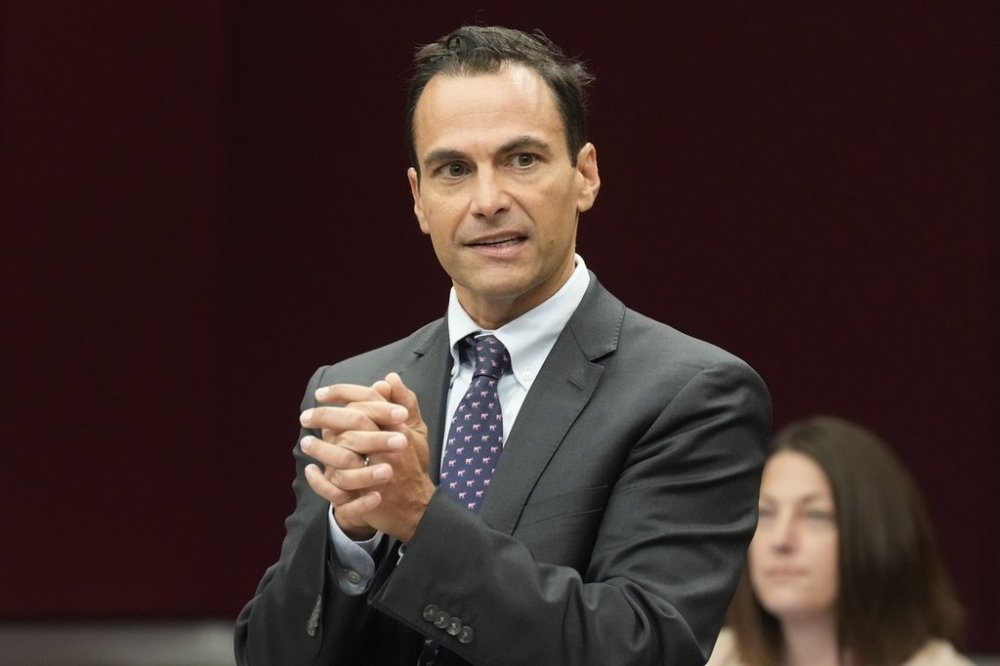Fiscal watchdog gives mixed review to Ottawa’s budget framework changes
Advertisement
Read this article for free:
or
Already have an account? Log in here »
To continue reading, please subscribe:
Monthly Digital Subscription
$1 per week for 24 weeks*
- Enjoy unlimited reading on winnipegfreepress.com
- Read the E-Edition, our digital replica newspaper
- Access News Break, our award-winning app
- Play interactive puzzles
*Billed as $4.00 plus GST every four weeks. After 24 weeks, price increases to the regular rate of $19.00 plus GST every four weeks. Offer available to new and qualified returning subscribers only. Cancel any time.
Monthly Digital Subscription
$4.75/week*
- Enjoy unlimited reading on winnipegfreepress.com
- Read the E-Edition, our digital replica newspaper
- Access News Break, our award-winning app
- Play interactive puzzles
*Billed as $19 plus GST every four weeks. Cancel any time.
To continue reading, please subscribe:
Add Free Press access to your Brandon Sun subscription for only an additional
$1 for the first 4 weeks*
*Your next subscription payment will increase by $1.00 and you will be charged $16.99 plus GST for four weeks. After four weeks, your payment will increase to $23.99 plus GST every four weeks.
Read unlimited articles for free today:
or
Already have an account? Log in here »
OTTAWA – Ottawa’s fiscal watchdog says that while there are good ideas in the new budget framework the federal government announced this week, its definition of capital spending could blur the picture of federal finances.
Finance Minster François-Philippe Champagne on Monday unveiled a series of changes to Ottawa’s fiscal planning, including a permanent shift to a fall budget schedule starting with the release of the Liberals’ Nov. 4 spending plan.
In a brief report responding to the changes, interim parliamentary budget officer Jason Jacques said Tuesday he’s in favour of the move away from the traditional spring budget.

He echoed Champagne’s argument that the shift will give parliamentarians better clarity on the government’s plans before they vote on spending proposals in the main estimates around March.
Jacques also said he’s glad to see the government intends to table its budget with traditional public accounting metrics alongside a new presentation that divides planned spending into two streams: capital and operations.
But he took issue with the definition the Liberals are using for capital spending. That definition covers direct federal investments in infrastructure and other assets — but also includes spending or incentives that encourage similar investments from the private sector or other levels of government.
“Based on our initial assessment, we find that the scope is overly expansive,” the report said.
The PBO said Ottawa’s definition of capital spending appears to exceed standards used in the United Kingdom — a framework officials have held up as an international comparison in justifying the transition.
Including corporate income tax expenditures, operating subsidies and measures to boost housing stock would “likely overstate” how much government spending is contributing to capital formation in Canada, the PBO argued.
The federal government is promising to balance the operating budget in three years, so that any new deficit spending after that point would be solely on the capital side.
Ottawa’s capital criteria will result in what appears to be a “more favourable” operating balance, the PBO said Tuesday.
Champagne pushed back Monday after opposition MPs accused the government of trying to distract Canadians from the state of public finances by splitting capital from operating spending.
“The capital budgeting framework is to provide more clarity, more transparency,” the minister said. “It’s an additional lens. It’s not replacing anything.”
In addition to balancing the operating budget, Prime Minister Mark Carney’s government has committed to maintaining a declining deficit-to-GDP ratio as one if its fiscal anchors — key metrics governments use to show prudence in fiscal management.
But Jacques has warned in recent weeks that the federal government’s fiscal path may be “unsustainable” in part because he estimates debt-to-GDP — a fiscal anchor used by the previous Liberal government — is no longer on a declining path over the medium term.
The PBO estimates the federal deficit for this fiscal year will balloon to $68.5 billion, up from $51.7 billion last year.
Champagne has argued the pace of spending is warranted by the economic disruption facing Canada due to U.S. tariffs and a shifting global trade landscape.
In the Tuesday report, the PBO also said there are still transparency and accountability gaps tied to the delay in publishing Canada’s public accounts for the last fiscal year.
The PBO argued the deadline for publishing those annual financial records should be moved forward to Sept. 30 from the current cut-off of Dec. 31, to provide timely information to parliamentarians.
This report by The Canadian Press was first published Oct. 7, 2025.

